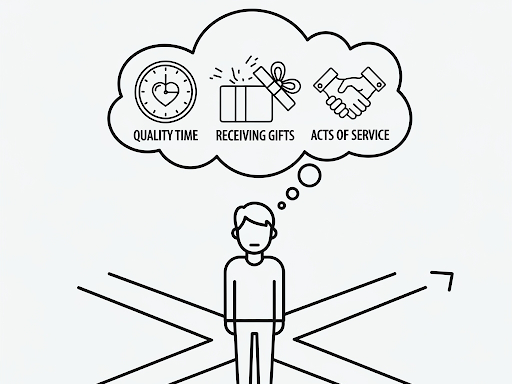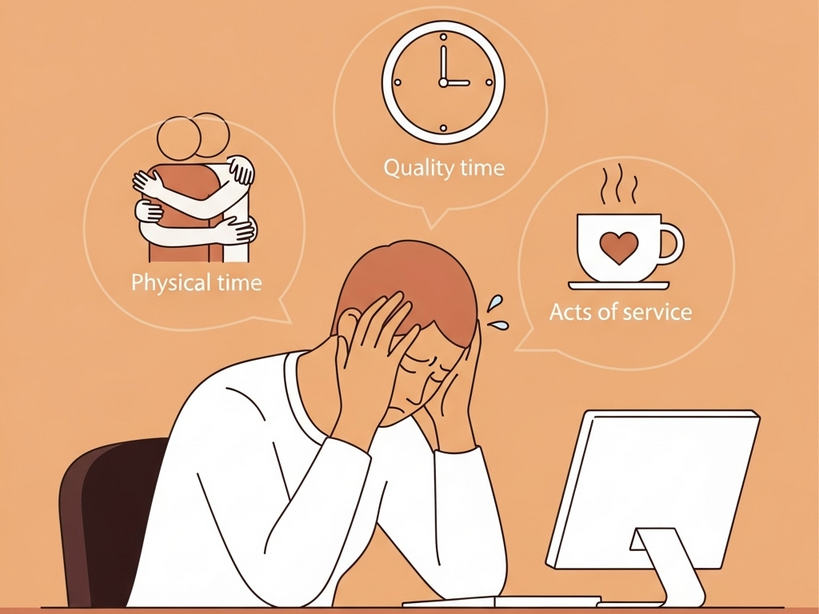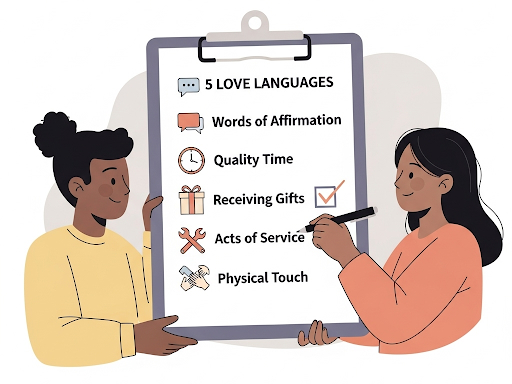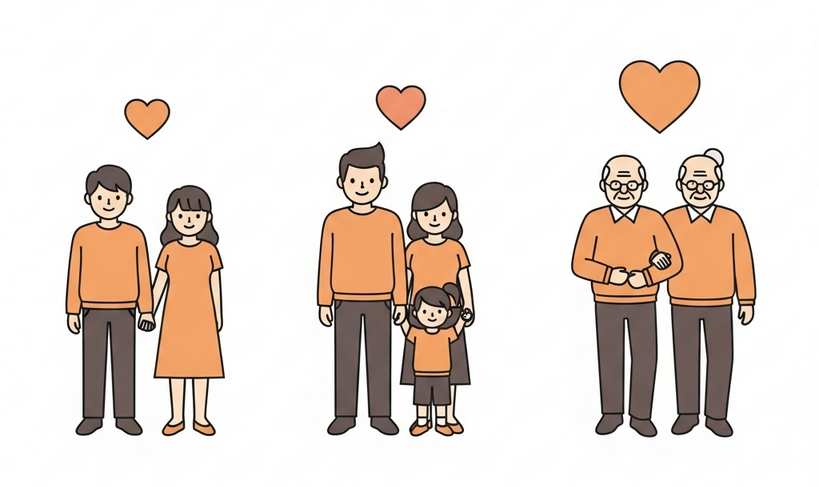Do Love Languages Change Over Time? A Complete Guide to Evolving Needs in Relationships (2025)

Do Love Languages Change Over Time?
Most people discover their love language and assume it will stay the same forever. You take the quiz, get your results, and suddenly you’ve got a framework for understanding how you feel most loved. But what happens when the way you connect doesn’t feel the same anymore?
The truth is, love languages can — and often do — change over time. Life transitions, personal growth, and shifting priorities all play a role in how we want to give and receive love. Recognizing this change is key to keeping relationships healthy and fulfilling.
This guide explores why love languages evolve, what signs to look for, and how couples can adapt when needs shift.
Can Love Languages Really Change Over Time?
The short answer: yes.
Love languages are not fixed personality traits. They’re closer to preferences — and like most preferences, they’re influenced by context. What mattered most in your early twenties may not matter as much in your thirties, after children, or during a major career shift.
For example:
- A teenager might thrive on Words of Affirmation — needing encouragement while building confidence.
- A new parent may value Acts of Service far more, because help with daily responsibilities feels like the deepest expression of love.
- Someone navigating grief or high stress may crave Physical Touch or Quality Time to feel secure.
Your love language isn’t set in stone; it evolves with you.
Why Do Love Languages Change?
Love languages shift for several reasons. Understanding the triggers behind those changes can make it easier to recognize and respond.
1. Major Life Transitions

Life changes often alter our emotional needs:
- Parenthood: Many new parents start valuing Acts of Service more than ever. A partner doing the dishes or helping with childcare feels far more loving than just words of encouragement.
- Career shifts: Starting a demanding job may make Quality Time harder to come by, making it feel more precious.
- Moving or big changes: Uprooting your life often increases the need for Words of Affirmation and reassurance.
2. Healing Past Wounds or Trauma

If you’ve been through a difficult relationship or trauma, your love language may adjust:
- Someone who once avoided Physical Touch may, after healing, crave more affectionate closeness.
- Others may shift away from Receiving Gifts if past partners used gifts manipulatively.
Personal growth changes how safe and appreciated you feel with different expressions of love.
3. Shifts in Stress Levels or Priorities

Love languages often adapt to your lifestyle:
- During stressful seasons, comfort-oriented love languages (like Physical Touch or Quality Time) can feel more meaningful.
- In calmer seasons, people may appreciate expressive or thoughtful languages (like Receiving Gifts or Words of Affirmation).
4. Natural Maturity and Growth
As we age, the way we define connection matures. What once felt exciting may feel shallow later. Many people grow into valuing quality and presence over surface-level gestures.
Signs Your Love Language Might Be Changing
So how do you know if your love language is shifting? Here are some common signs:
- Old expressions don’t feel the same. You appreciate the effort, but something’s missing.
- You crave new forms of connection. You find yourself longing for hugs, help, or shared experiences that weren’t as important before.
- You feel misunderstood even when your partner tries. This disconnect may be a sign your primary language has shifted.
- You notice frustration building. If you feel unseen despite your partner’s effort, it may not be effort that’s the problem — it’s alignment.
How to Adapt When Love Languages Change
Change doesn’t have to mean conflict. In fact, adapting together can strengthen your relationship.
1. Talk About It Openly
The most important step is communication. Let your partner know if certain expressions feel more important now. Frame it as growth, not rejection:
“I’ve realized lately that quality time means more to me than it used to. Can we make space for that?”
2. Re-Take the Love Language Quiz
Revisiting the quiz every few years can act like a check-in. It’s not about labeling yourself, but about creating conversation starters.
3. Experiment With New Expressions
If your partner’s language feels different from yours — or yours has shifted — try experimenting. It may feel awkward at first, but flexibility helps love reach its target.
4. Practice Flexibility and Curiosity
Instead of clinging to the idea of one “forever language,” stay curious. Ask your partner:
- “What’s been making you feel most loved lately?”
- “Has that changed from before?”
These questions show openness and adaptability.
Evolving Together in a Relationship

Love languages changing isn’t a threat — it’s an opportunity. It means you get to learn each other again and again.
Couples who embrace change instead of resisting it tend to:
- Stay more connected long-term.
- Avoid falling into routine resentment.
- Discover new ways to express creativity and affection.
Think of it like updating your phone or computer’s operating system. Your relationship “software” needs updates too — and staying current ensures everything keeps running smoothly.
FAQs About Changing Love Languages
Do love languages stay the same forever?
No. They evolve with life experiences, stress, and growth. Some people may keep the same top preference for decades, but it’s normal for shifts to occur.
How often should I take a love language quiz?
Every couple of years, or whenever you notice that old methods of love don’t feel as fulfilling.
Why is my partner’s love language different now?
Likely because their needs have changed — from life transitions, healing, or stress. It doesn’t mean they love you less. It just means their emotional priorities are evolving.
Final Thoughts
Yes, love languages can and do change over time. Life stages, personal growth, and shifting priorities all influence how we want to receive love. By recognizing and adapting to these changes, you and your partner can keep your relationship alive, dynamic, and deeply fulfilling.
Instead of worrying about whether your love language is changing, embrace it as a sign of growth. Each shift is an invitation to know yourself better — and to know your partner on a deeper level.


Leave a Reply